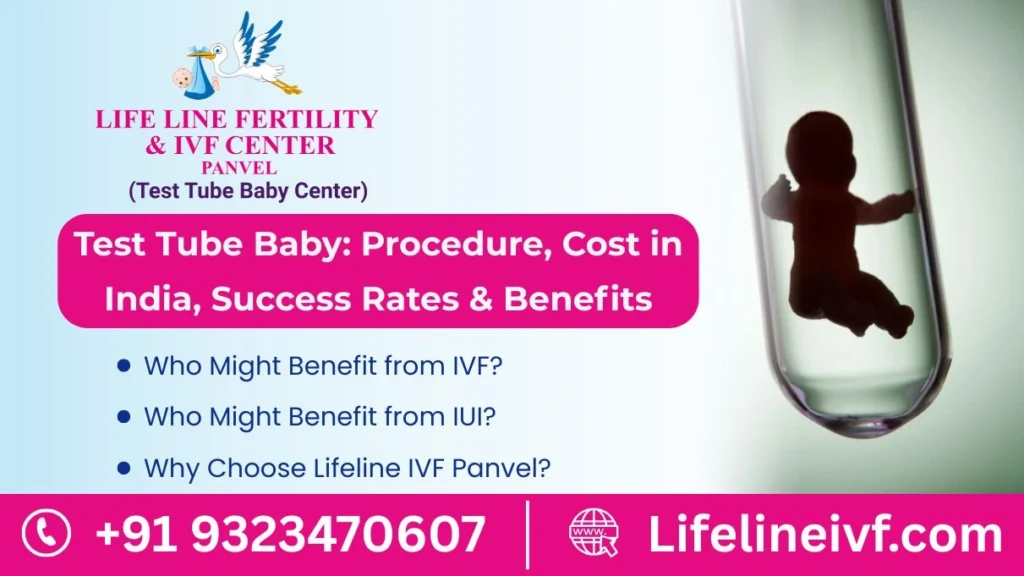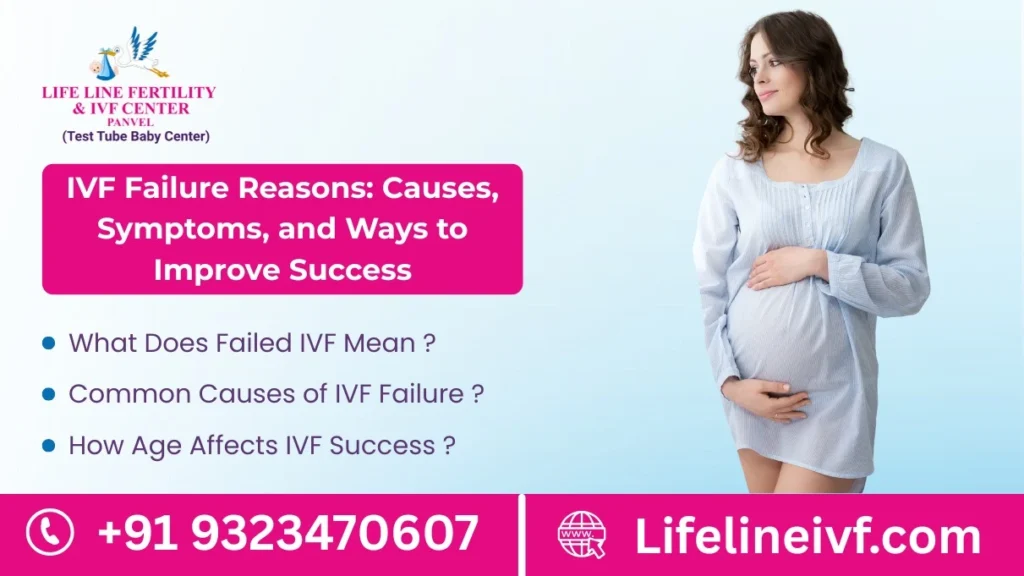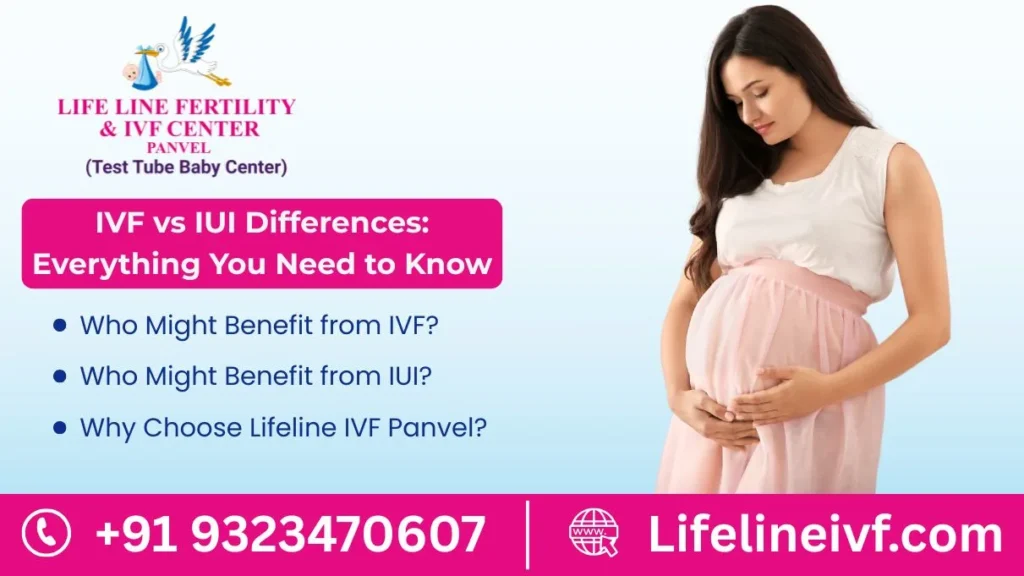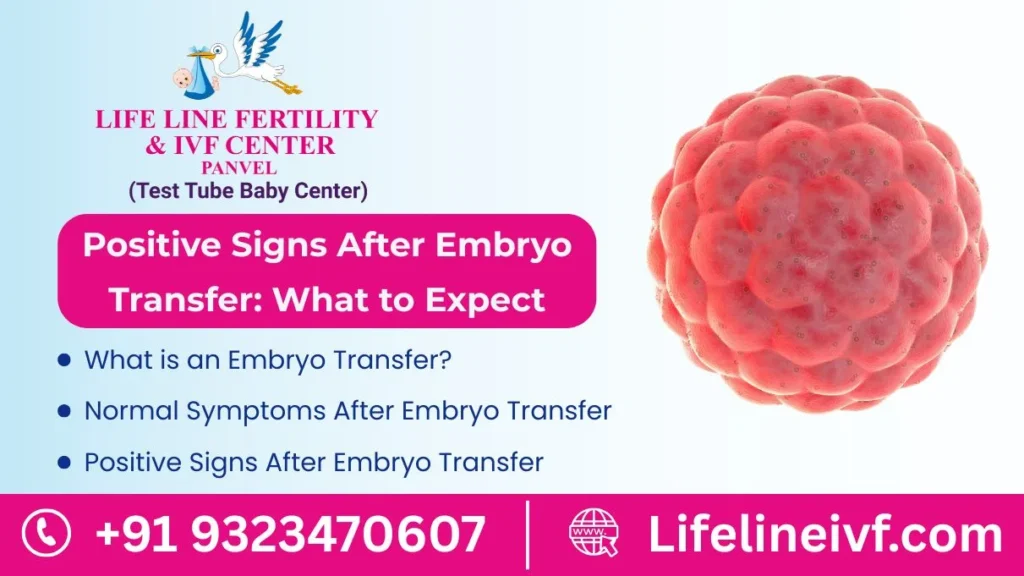Surrogate Process in Hindi: सरोगेसी प्रक्रिया, प्रकार, खर्च और नए नियम

सरोगेसी प्रक्रिया क्या है? सरोगेसी एक ऐसी प्रक्रिया है जिसमें एक महिला किसी दूसरे दंपत्ति के बच्चे को जन्म देती है। सरल शब्दों में, जो दंपत्ति स्वयं बच्चा पैदा करने में असमर्थ होते हैं, वे अपने बच्चे को जन्म देने के लिए किसी अन्य महिला के गर्भ का उपयोग करते हैं। इस प्रक्रिया में, जिस दंपत्ति के गर्भ में बच्चा होता है उसे “इच्छुक माता-पिता” कहा जाता है और बच्चे को जन्म देने वाली महिला को “सरोगेट माँ” कहा जाता है। सरोगेसी से बच्चा कैसे पैदा किया जाता है? यह प्रक्रिया विज्ञान की मदद से की जाती है और इसमें आईवीएफ (इन विट्रो फर्टिलाइजेशन) जैसी तकनीकों का इस्तेमाल होता है । आईवीएफ, प्रयोगशाला में अंडे और शुक्राणुओं के संयोजन से भ्रूण बनाने और फिर उस भ्रूण को सरोगेट माँ के गर्भाशय में स्थानांतरित करने की प्रक्रिया है। कभी-कभी कृत्रिम गर्भाधान का भी इस्तेमाल किया जाता है, लेकिन आजकल आईवीएफ ज़्यादा लोकप्रिय है। सरोगेसी ने कई जोड़ों के माता-पिता बनने के सपने को पूरा किया है, लेकिन इसमें कुछ कानूनी और भावनात्मक पहलू भी शामिल हैं। सरोगेसी के प्रकार सरोगेसी के दो मुख्य प्रकार हैं – पारंपरिक सरोगेसी और गर्भावधि सरोगेसी। आइए समझते हैं कि ये दोनों प्रकार कैसे भिन्न हैं: पारंपरिक सरोगेसी: इस प्रकार में, सरोगेट माँ के अपने अंडे का उपयोग किया जाता है। यानी, उसके अंडे और भावी पिता के शुक्राणु के संयोजन से शिशु का निर्माण होता है। इसके लिए कृत्रिम गर्भाधान का उपयोग किया जाता है, जहाँ शुक्राणु को सरोगेट माँ के गर्भ में प्रविष्ट कराया जाता है। इस प्रक्रिया में, सरोगेट माँ ही शिशु की जैविक माँ होती है, क्योंकि शिशु उसके डीएनए से बनता है। लेकिन शिशु के जन्म के बाद, उसे भावी माता-पिता को दे दिया जाता है। इस प्रकार का उपयोग अब बहुत कम होता है क्योंकि इसमें भावनात्मक और कानूनी कठिनाइयाँ शामिल होती हैं, जैसे कि बढ़ती भावनात्मक निकटता के कारण सरोगेट माँ शिशु को देने से इनकार कर सकती है। गर्भावधि सरोगेसी: आजकल इस प्रकार का प्रयोग ज़्यादा होता है। इसमें, इच्छित माँ के अंडाणु और इच्छित पिता के शुक्राणु का उपयोग करके लैब में एक भ्रूण बनाया जाता है। फिर इस भ्रूण को सरोगेट माँ के गर्भाशय में स्थानांतरित कर दिया जाता है। इसमें, सरोगेट माँ केवल बच्चे का पालन-पोषण और जन्म देती है, लेकिन उसका बच्चे से कोई आनुवंशिक संबंध नहीं होता। यानी, बच्चा पूरी तरह से इच्छित माता-पिता का होता है। यह प्रक्रिया आईवीएफ की मदद से की जाती है और इसमें सरोगेट माँ को केवल एक ‘वाहक’, यानी एक माध्यम या साधन के रूप में देखा जाता है। भारत में इस प्रकार का प्रयोग ज़्यादा होता है क्योंकि इसमें कानूनी जटिलताएँ कम होती हैं। सरोगेसी में कितना खर्च आता है? सरोगेसी एक महंगी प्रक्रिया है और इसकी लागत कई कारकों पर निर्भर करती है। भारत में लागत: भारत में सरोगेसी की लागत लगभग 10-25 लाख रुपये है। इसमें आईवीएफ प्रक्रिया (3-5 लाख रुपये), सरोगेट माँ के इलाज का खर्च (5-10 लाख रुपये), उसकी देखभाल (रहने, खाने-पीने का खर्च) और कानूनी कागजी कार्रवाई का खर्च (1-2 लाख रुपये) शामिल है। अगर आप इसे किसी बड़े शहर या अच्छे अस्पताल से करवा रहे हैं, तो इसकी लागत 30 लाख रुपये तक जा सकती है। लागत को प्रभावित करने वाले कारक: लागत अस्पताल की गुणवत्ता, सरोगेट माँ की ज़रूरतों और आईवीएफ चक्रों की संख्या पर निर्भर करती है। कभी-कभी एक से ज़्यादा प्रयासों की आवश्यकता होती है, जिससे लागत बढ़ जाती है। इसके अलावा, अगर गर्भावस्था के दौरान कोई जटिलताएँ आती हैं, तो अतिरिक्त लागत आ सकती है। सरोगेसी का नया नियम क्या है? भारत में सरोगेट मदर बनने के कुछ सख्त नियम हैं। कोई भी महिला सरोगेट मदर नहीं बन सकती। आयु: उसकी आयु 25 से 35 वर्ष के बीच होनी चाहिए, क्योंकि इस आयु में शरीर गर्भधारण के लिए अधिक स्वस्थ होता है। विवाहित होना: उसे विवाहित होना चाहिए और उसका कम से कम एक बच्चा होना चाहिए। इससे उसे गर्भावस्था और प्रसव का अनुभव मिलता है। रिश्तेदार: भारत के नए कानून के अनुसार, सरोगेट माँ, भावी माता-पिता की कोई करीबी रिश्तेदार होनी चाहिए, जैसे बहन, मौसी, सास या कोई अन्य करीबी रिश्तेदार। इससे शोषण का खतरा कम हो जाता है। स्वास्थ्य: उसे शारीरिक और मानसिक रूप से स्वस्थ होना चाहिए। डॉक्टर द्वारा प्रमाणित किया जाना चाहिए कि वह सरोगेसी के लिए उपयुक्त है। एक बार की सरोगेसी: वह अपने जीवन में केवल एक बार ही सरोगेट मां बन सकती है, ताकि उसके शरीर पर अधिक दबाव न पड़े। भारत में सरोगेसी से जुड़े नियम बेहद सख्त हैं। 2021 में “सरोगेसी (विनियमन) अधिनियम” लागू हुआ और इसके तहत कई बड़े बदलाव हुए। पहले भारत “व्यावसायिक सरोगेसी” के लिए मशहूर था, लेकिन अब यह पूरी तरह बंद हो गया है। आयु सीमा: इच्छुक माता की आयु 23 से 50 वर्ष के बीच होनी चाहिए तथा इच्छुक पिता की आयु 26 से 55 वर्ष के बीच होनी चाहिए। यह सीमा इसलिए रखी गई है क्योंकि इस आयु में दम्पति माता-पिता बनने के योग्य होते हैं तथा अधिक आयु में जटिलताओं का खतरा बढ़ जाता है। कानूनी समझौता: सरोगेसी के लिए एक अनुबंध आवश्यक है, जिसमें सभी शर्तें स्पष्ट रूप से लिखी हों – जैसे कि सरोगेट माँ बच्चे पर दावा नहीं करेगी और भावी माता-पिता उसकी पूरी देखभाल करेंगे। यह समझौता किसी सरकारी वकील द्वारा तैयार किया जाना चाहिए। इससे भविष्य में किसी भी विवाद से बचा जा सकेगा। सरोगेट मदर बीमा: सरोगेट मदर को 36 महीने का मेडिकल बीमा करवाना होगा, जिससे यह सुनिश्चित होगा कि प्रसव के बाद भी उसकी देखभाल की जाएगी। अगर गर्भावस्था के दौरान कोई समस्या आती है, तो उसका इलाज मुफ़्त में किया जाएगा। दंड और सज़ा: अगर कोई इस कानून का उल्लंघन करता है – जैसे कि व्यावसायिक सरोगेसी करके या किसी विदेशी जोड़े की मदद करके – तो उसे 10 साल तक की जेल और 10 लाख रुपये का जुर्माना हो सकता है। यह सख्त नियम लोगों को कानून तोड़ने से रोकने के लिए है। सरकारी निगरानी: सभी सरोगेसी प्रक्रियाएँ केवल सरकार द्वारा अनुमोदित अस्पतालों और डॉक्टरों के माध्यम से ही की जाएँगी। इसके लिए राष्ट्रीय सरोगेसी बोर्ड
Test Tube Baby: Procedure, Cost in India, Success Rates & Benefits

Test Tube Baby: Everything You Need to Know Becoming parents is one of the happiest dreams for many couples. But sometimes, health challenges make natural conception difficult. With medical science, new solutions like the test tube baby treatment give hope to families. In this guide, we will explain what a test tube baby is, how the procedure works, its success rates, cost in India, and why couples choose this treatment. What is a Test Tube Baby? A test tube baby is simply another name for IVF (In Vitro Fertilization). In this process, doctors take a woman’s eggs and a man’s sperm, combine them in a laboratory, and once fertilization happens, place the embryo back into the woman’s uterus.The term “test tube baby” became popular many years ago because people thought the baby grows inside a tube. But the truth is different the baby grows inside the mother’s womb, just like in natural pregnancy. The only part done outside is the fertilization step. Why is the Test Tube Baby Procedure Done? The test tube baby treatment helps couples who struggle with infertility. Doctors may suggest IVF when: The woman has blocked or damaged fallopian tubes. The man has a low sperm count or poor sperm quality. There are problems with ovulation. Couples face unexplained infertility. Previous fertility treatments did not work. Who is a Candidate for Test Tube Baby Treatment? Not every couple needs IVF. Doctors usually recommend test tube baby treatment when natural methods or simpler options like medicines or IUI (Intrauterine Insemination) do not work. Good candidates may include: Women with endometriosis. Women with irregular ovulation. Couples with genetic concerns. Older women where egg quality has reduced. Step-by-Step Test Tube Baby Procedure The test tube baby procedure happens in several stages: Initial Consultation The couple meets fertility specialists who do tests, scans, and medical history checks. This helps in making a personalized plan. Medications and Egg Retrieval The woman is given fertility medicines to produce multiple eggs. Once the eggs are mature, doctors carefully retrieve them from the ovaries. Fertilization and Embryo Transfer The eggs are combined with sperm in the lab. After fertilization, the embryo is monitored for a few days and then transferred to the uterus. If the embryo implants successfully, pregnancy begins. Understanding Test Tube Baby Treatments There are different types of IVF treatments, such as: Conventional IVF ICSI (Intracytoplasmic Sperm Injection) Donor egg or sperm IVF Frozen embryo transfer The treatment depends on the couple’s medical condition. Are There Any Risks and Side Effects of Having a Test Tube Baby? IVF is generally safe, but like any medical treatment, it may have some risks: Mild discomfort after egg retrieval. Bloating or mood swings from fertility medicines. Rare cases of multiple pregnancy (twins or triplets). Ovarian Hyperstimulation Syndrome (OHSS), though doctors monitor carefully to prevent it. Are Babies Born from Test Tube Babies Normal and Healthy? Yes. Test tube babies are completely normal. They grow, look, and live just like any naturally conceived child. Research has shown that IVF children have the same chances of good health, intelligence, and emotional development as other kids. Success Rates and Factors Influencing Outcomes The success of a test tube baby procedure depends on many factors, such as: Age of the woman (younger women usually have higher success). Quality of the eggs and sperm. Uterine health. Lifestyle factors like smoking, alcohol, stress, and obesity. Doctors may use advanced technologies like embryo freezing, PGT (genetic testing), and donor programs to improve results. Pros and Cons of Test Tube Baby Like every treatment, IVF has both advantages and challenges. Pros: High chances of pregnancy for couples with infertility. Option to use donor eggs or sperm. Helps couples with genetic problems. Cons: Expensive compared to simpler treatments. May need more than one cycle. Emotional stress during the process. Factors Affecting Success Rates Some important factors that affect success include: Age of the woman. Previous pregnancy history. Medical conditions like PCOS, endometriosis, or low sperm count. Quality of embryos. How Much Do Test Tube Babies Cost in India? The test tube baby cost in India is lower than in many other countries, making it an affordable option. On average, one IVF cycle in India costs between ₹1.5 lakh to ₹2.5 lakh, depending on: City and clinic location. Type of IVF (with or without donor eggs/sperm). Use of advanced technologies like ICSI or embryo freezing. Medicines required. Genetic Differences in a Test Tube Baby A common question people ask is whether test tube babies are genetically different. The answer is no. A test tube baby carries the genetic material of the parents, just like in natural conception. The baby is biologically the child of the couple unless donor eggs or sperm are used. What Medications Are Used for Test Tube Baby? During the IVF process, doctors may prescribe: Fertility injections to stimulate ovaries. Hormonal medicines to prepare the uterus. Medicines after embryo transfer to support implantation. These medicines are safe and used under strict medical guidance. What Can You Expect After Test Tube Baby? After the embryo transfer, couples usually wait for about 12–14 days before a pregnancy test. Some women may feel mild cramping, bloating, or spotting. Others may not feel any symptoms at all, and that is also normal. How Long Does Test Tube Baby Take? One IVF cycle usually takes 4–6 weeks, including: Fertility medicines. Egg retrieval. Fertilization in the lab. Embryo transfer. Some couples may need more cycles for success. When To Opt For Test Tube Baby? Couples are advised to consider IVF when: They have tried natural methods for over a year without success. The woman is over 35 years old. There are known fertility problems like blocked tubes or low sperm count. Other fertility treatments have failed. Why Choose Lifeline IVF Panvel? At Lifeline IVF Panvel, couples receive advanced fertility care in a supportive and compassionate environment. The clinic is led by expert specialists with years of experience who guide patients at every step of the journey. With
IVF Failure Reasons: Causes, Symptoms, and Ways to Improve Success

IVF Failure Reasons: Understanding Why It Happens and How to Move Forward When couples start the IVF (In Vitro Fertilization) journey, they do so with great hopes. But sometimes, the process doesn’t succeed on the first attempt. Understanding the reasons behind IVF failure helps couples prepare better, make informed choices, and stay strong during the process. What Does Failed IVF Mean? Failed IVF means that even after transferring embryos into the uterus, pregnancy does not occur. This can happen for many reasons, ranging from embryo quality to the body’s response. A failed IVF cycle can feel discouraging, but it doesn’t mean that success is impossible in future attempts. IVF Failure Reasons: What Can Go Wrong? IVF is a delicate process that involves many steps egg retrieval, fertilization, embryo growth, and transfer. If any of these steps face challenges, it can result in failure. Sometimes the issue lies with the embryo, while other times it may be related to the uterus or overall health. Common Causes of IVF Failure The reasons for IVF failure can be linked to natural biological factors or external lifestyle influences. Some of the most common causes include: Uterine health issues – Fibroids, polyps, or scarring that prevent embryo implantation Genetic problems in embryos – Embryos that appear healthy but carry chromosomal abnormalities Poor ovarian response – Ovaries not producing enough eggs despite fertility medicines Low egg or sperm quality – Leading to weak embryo development Lifestyle choices – Smoking, alcohol use, obesity, poor diet, or high stress affecting fertility outcomes By identifying these causes early, doctors can guide couples toward changes and treatments that improve the chances of success in the next cycle. How to Prepare for a Second IVF Cycle A failed IVF cycle is not the end of the road. Many couples succeed on their second or third attempt. Preparation for the next cycle may include: Comprehensive medical tests to find hidden causes Lifestyle adjustments such as quitting smoking, reducing alcohol, and improving diet Stress management techniques like yoga or counseling Adjusted fertility medications based on the body’s earlier response IVF Failure Symptoms: What to Expect Not every IVF failure shows obvious signs, but the body often gives hints. Common IVF Failure Symptoms Include: Spotting or bleeding before the pregnancy test date Menstrual-like cramps A drop in progesterone-related symptoms, such as breast tenderness Getting a period around the expected time It is important to wait for the official clinic test instead of relying only on symptoms. Emotional Impact of IVF Failure Failed IVF can be emotionally overwhelming. Couples may feel sadness, frustration, or even guilt. Emotional support is just as important as medical treatment during this phase. Talking to a counselor, joining support groups, or simply leaning on family and friends can make a big difference. Coping with IVF Failure Some ways to cope with the disappointment include: Giving yourself time to grieve before starting another cycle Focusing on physical and mental well-being Seeking professional counseling if needed Exploring alternative options like donor eggs, donor sperm, or surrogacy Diagnosing IVF Failure: What Happens Next? After a failed cycle, doctors usually conduct tests to find out why it didn’t work. These may include: Hormonal blood tests Imaging tests to check the uterus Genetic testing of embryos Semen analysis for sperm quality Identifying the exact reason helps design a more effective plan for the next attempt. Improving IVF Success Rates Doctors recommend a combination of science and lifestyle changes to improve outcomes, such as: Using advanced techniques like ICSI (Intracytoplasmic Sperm Injection) Trying preimplantation genetic testing (PGT) for embryos Improving nutrition and exercise habits Maintaining a healthy weight and balanced lifestyle Getting Periods After Failed IVF If IVF fails, a woman usually gets her period within one to two weeks after stopping progesterone support. This can be heavier or slightly different than a normal cycle. If the period doesn’t start or is unusually painful, consulting the doctor is important. When to See a Specialist Couples should consult a fertility specialist if they have: Multiple failed IVF attempts Known uterine or sperm quality issues Age above 35 with no pregnancy after several tries Unexplained infertility despite treatment Why Choose Lifeline IVF Panvel? At Lifeline IVF Panvel, couples are supported every step of the way with advanced IVF laboratories equipped with modern technology and guided by experienced fertility specialists who have strong success rates. Each couple receives a personalized treatment plan tailored to their unique medical needs, along with emotional support and counseling to handle the ups and downs of the fertility journey. The clinic also makes treatment accessible by offering affordable IVF packages compared to larger metro cities. With a blend of modern science and compassionate care, Lifeline IVF Panvel ensures that patients feel confident, supported, and hopeful throughout their path to parenthood. Conclusion IVF failure can feel like a setback, but it doesn’t mean the dream of parenthood is over. By understanding the possible reasons for failure whether biological, lifestyle-related, or age-driven couples can prepare better for their next attempt. With proper guidance, medical support, and emotional care, the chances of success improve with every step. Lifeline IVF Panvel stands beside couples with advanced treatments and compassionate care, helping them move closer to achieving their dream of starting a family. FAQs Q1. What is the most common reason for IVF failure? Poor embryo quality is often the main reason, though other factors like uterine health and age also matter. Q2. Can IVF work after multiple failures? Yes. Many couples succeed after two or three attempts with improved strategies and medical guidance. Q3. Does stress affect IVF success? High stress may not directly cause failure, but reducing stress helps improve overall fertility health. Q4. How long should I wait after a failed IVF cycle before trying again? Most doctors recommend waiting at least one menstrual cycle before beginning another attempt. Q5. Is getting periods after failed IVF normal? Yes, it usually means the body is resetting after treatment, but any unusual bleeding should be checked
IVF vs IUI Differences: Key Facts, Procedures, Success Rates & Costs Explained

IVF vs IUI Differences: Everything You Need to Know Infertility can feel like a tough road, but medical science today offers effective solutions like IVF (In Vitro Fertilization) and IUI (Intrauterine Insemination). Both treatments aim to help couples conceive, but the processes, costs, success rates, and who they are suitable for can differ a lot. This blog explains the IVF vs IUI differences in simple words so couples can make the right choice with confidence. Key Differences Between IVF and IUI The main difference between IVF and IUI is where fertilization happens. In IVF, fertilization occurs in a laboratory outside the body. In IUI, sperm is placed directly into the uterus so fertilization can happen naturally inside the woman’s body. Both methods aim to achieve pregnancy, but the choice depends on medical history, age, and health conditions. IVF – In Vitro Fertilization The IVF Procedure Explained The IVF procedure involves several steps: Ovarian stimulation using medicines to produce multiple eggs. Egg retrieval from the ovaries. Fertilization of eggs with sperm in a lab. Growth of embryos in controlled lab conditions. Embryo transfer into the woman’s uterus. Pros and Cons of IVF Pros: Higher success rates, option for genetic testing, possibility to use donor eggs or sperm, and chance to freeze embryos for future use. Cons: More expensive than IUI, physically and emotionally demanding, and requires multiple clinic visits. Who Might Benefit from IVF? IVF is often suggested for couples with: Blocked or damaged fallopian tubes Severe male infertility issues Repeated IUI failures Advanced maternal age (above 35) Genetic concerns requiring embryo testing IUI – Intrauterine Insemination The IUI Procedure Explained The IUI procedure is simpler than IVF. It includes: Monitoring the woman’s ovulation. Collecting and preparing healthy sperm. Inserting the sperm directly into the uterus during ovulation. Pros and Cons of IUI Pros: Less invasive, lower cost, simple procedure, and fewer medicines needed. Cons: Lower success rates compared to IVF, limited effectiveness in severe infertility cases, and may require multiple cycles. Who Might Benefit from IUI? IUI is often recommended for: Couples with unexplained infertility Mild male infertility Women with ovulation issues Couples with limited budget before moving to IVF IVF vs IUI – Understanding the Natural Aspect When comparing IVF vs IUI differences, many couples also think about how natural the process feels. IUI is often considered closer to natural conception since fertilization happens inside the woman’s body, just with medical support to increase chances. IVF, on the other hand, involves fertilization in a laboratory, which makes it more scientific and less like the body’s usual process. Still, IVF offers greater control, higher success rates, and more options for couples facing complex fertility issues. The feeling of “naturalness” is subjective, and what matters most is choosing the method that gives the best chance for a healthy pregnancy. Emotional Journey of IVF vs IUI Beyond medical steps, the emotional experience of IVF and IUI can feel very different. IVF often involves more stress because it is longer, more complex, and requires injections and procedures. Couples may also feel pressure due to higher costs. On the other hand, IUI is less invasive and quicker, which makes it emotionally lighter for many couples. Still, both treatments require patience, support, and open communication between partners. Lifestyle Role in IVF and IUI Success Healthy habits can improve the chances of success in both IVF and IUI. Eating a balanced diet, avoiding smoking and alcohol, maintaining a healthy weight, and reducing stress all play an important role. Doctors may also recommend supplements like folic acid. Since the body’s readiness affects the outcome, couples who actively work on lifestyle changes often see better results in their fertility treatments. Risks of IVF and IUI Both treatments are generally safe but can involve risks: IVF Risks: Ovarian hyperstimulation syndrome (OHSS), multiple pregnancies, and side effects of fertility medicines. IUI Risks: Minimal risk of infection, mild cramping, and a slightly higher chance of multiple pregnancies if fertility medicines are used. IVF vs IUI Success Rates IVF has a higher success rate (30–50% per cycle depending on age). IUI success rates are usually 10–20% per cycle. Success depends on factors like age, egg quality, sperm quality, and overall reproductive health. Cost Comparison: IVF vs IUI in India IVF Cost in India: ₹1.5 lakh – ₹2.5 lakh per cycle (may increase with advanced procedures). IUI Cost in India: ₹10,000 – ₹25,000 per cycle. While IVF is more costly, it may save money in the long run due to higher success rates compared to multiple IUI attempts. Factors to Consider When Choosing Between IVF and IUI Couples should think about: Age: IVF is often better for women above 35. Budget: IUI is more affordable initially. Cause of Infertility: IVF works better for severe infertility. Time: IVF gives faster results for couples with limited time to conceive. Choose the Best Option Based on Your Needs! Every couple’s journey is unique. While IUI may be the first step for mild infertility cases, IVF offers higher chances for complex conditions. Discussing with a fertility expert helps decide the most suitable path. Why Choose Lifeline IVF Panvel? At Lifeline IVF Panvel, couples receive complete fertility care under one trusted roof. The clinic is led by experienced fertility specialists who combine medical expertise with compassionate support. Advanced labs equipped with modern technology ensure treatments like IVF and IUI are performed with precision and safety. Packages are designed to remain affordable while maintaining high-quality standards, making treatments accessible for more families. Along with medical guidance, emotional and psychological support is provided throughout the journey. With transparent practices and ethical standards, Lifeline IVF Panvel focuses on giving hope and confidence to every couple dreaming of parenthood. Conclusion Understanding the IVF vs IUI differences helps couples make an informed decision about their fertility journey. IVF offers higher success rates and advanced options for complex infertility, while IUI is a simpler and more affordable first step. The right choice depends on factors like age, health conditions, and budget. With expert
Positive Signs After Embryo Transfer | Lifeline IVF Panvel Guide

Positive Signs After Embryo Transfer: What to Expect Embryo transfer is one of the most important and emotional steps in the IVF journey. Many couples eagerly look for positive signs after embryo transfer, hoping it means the treatment has worked. Some women notice body changes, while others may not feel anything at all and both situations can be completely normal.This blog will guide you through what happens after an embryo transfer, normal and positive signs, possible precautions, and when to contact your doctor. What is an Embryo Transfer? Embryo transfer is the final step of the IVF process, where a healthy embryo is placed into the woman’s uterus. It is done using a thin, flexible tube and usually feels painless. After this step, the embryo needs to implant in the uterine lining for pregnancy to occur. What Happens in the Body After Embryo Transfer? Once the embryo is inside the uterus, the body begins preparing for implantation. Hormones like progesterone make the lining of the uterus thick and ready to support the embryo. During this time, women may notice mild cramps, bloating, mood swings, or sometimes nothing at all. Normal Symptoms After Embryo Transfer Not every woman feels symptoms, but if you do, they’re often light and temporary. Some Common Changes Include Mild spotting or light brown discharge Slight cramps, similar to period pain Tiredness or sleepiness Breast tenderness Mood changes or irritability These changes can be due to hormonal medicines as well as the body adjusting. Managing Normal Symptoms Post Embryo Transfer If you notice these body changes after embryo transfer, small lifestyle adjustments may help: Take rest when needed, but don’t lie in bed all day Drink enough water to avoid bloating Eat healthy foods to stay energized Use light relaxation methods like meditation or music Symptoms That Require Medical Attention Most symptoms are harmless, but some need urgent care. Contact Your Doctor If You Notice Heavy bleeding that soaks pads Severe cramps or abdominal pain High fever or chills Difficulty breathing or chest discomfort After Embryo Transfer Day by Day: How the Body Changes The body responds differently for every woman, but here’s a general timeline of changes: Days 1–3: Embryo is settling inside the uterus. Some bloating or tiredness may appear Days 4–6: Implantation can occur. Spotting or mild cramps may happen Days 7–9: Hormones rise, leading to mood swings, fatigue, or breast tenderness Days 10–14: The best time to confirm with a blood test. Home tests may still give unclear results Positive Signs After Embryo Transfer The most encouraging positive signs after embryo transfer may include: Implantation spotting between day 6–9 A feeling of heaviness in the lower belly Fatigue and sleepiness due to rising hormones Breast changes like sensitivity or swelling These are only possible signs. The most reliable confirmation is a blood test at the clinic. How Soon Do Positive Signs Appear? Some women may feel changes within the first week, while others don’t feel anything until after the pregnancy test. Both are normal. Early signs are often similar to PMS or side effects of fertility medicines. What If You Don’t Notice Any Positive Signs? It’s common to worry if there are no symptoms after embryo transfer. But the truth is, “no symptoms after embryo transfer — is that normal?” Yes, it is. Many successful IVF pregnancies happen with no noticeable changes. Tips for Tracking Positive Signs Write a short diary of daily symptoms Don’t compare your journey with others Avoid testing too early at home Talk to your doctor if worried — they can guide you better Emotional Impact of the Waiting Period The two-week wait after embryo transfer can feel long and stressful. Some women feel hopeful when they notice changes, while others feel anxious if there are none. It’s important to stay calm, focus on self-care, and lean on family, partner, or counseling for support. What Happens If There Are No Symptoms After Embryo Transfer? Not having symptoms does not mean failure. Every woman’s body reacts differently. The best way to know is by waiting for the clinic’s official blood test. What Should Be Done After Embryo Transfer? After embryo transfer, focus on rest and follow your doctor’s advice. Key Things to Remember Take prescribed medicines on time Follow your after embryo transfer diet chart Avoid alcohol, smoking, or heavy exercise Practice light activities and relaxation to reduce stress What Makes the Clinic Test More Accurate Than a Home Test? Clinic blood tests detect exact levels of the pregnancy hormone (hCG). Home urine tests can give false negatives if taken too early. That’s why doctors recommend waiting 12–14 days for the official test. Lifestyle Tips for Successful Embryo Transfer Supporting your body with healthy habits increases your chances of success: Diet Eat balanced meals with fruits, vegetables, grains, and lean proteins. Hydration Drink enough water throughout the day. Sleep Get good rest to help your body recover. Relaxation Try yoga, meditation, or gentle breathing exercises. When to Contact Your Doctor It’s always better to be safe. Call Your Doctor If You Experience Heavy bleeding Severe cramps Fever or chills Shortness of breath Why Choose Lifeline IVF Panvel? At Lifeline IVF Panvel, couples receive advanced fertility care with modern IVF labs, expert fertility specialists, and a compassionate approach. Each treatment plan is personalized, and counseling support is available to guide couples through the emotional journey. With affordable IVF packages compared to big metro cities, Lifeline IVF Panvel makes advanced treatment more accessible. By combining technology with care, the clinic ensures couples feel confident and supported at every stage. Conclusion Positive signs after embryo transfer can bring excitement, but not noticing any signs is also normal. Every woman’s IVF journey is unique, and only the clinic test can confirm pregnancy. By following a healthy lifestyle, taking precautions, and trusting the experts at Lifeline IVF Panvel, couples can move forward with confidence and hope. FAQs How soon can I know if my embryo transfer worked? A blood test at the clinic, usually
